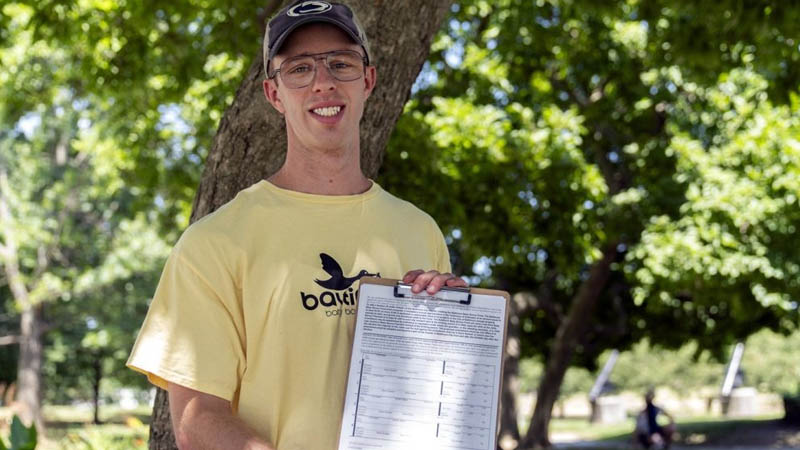New parents in Baltimore could receive a $1,000 “baby bonus” if voters approve a groundbreaking proposal aimed at reducing childhood poverty from birth with a modest one-time cash payment. This initiative, driven by a group of Baltimore teachers, recently garnered the necessary 10,000 signatures to place the question on the November ballot. Their campaign featured extensive canvassing efforts and a charming logo: a flying cartoon stork carrying a bag of money.
The proposal is inspired by a similar program implemented this year in Flint, Michigan, where expectant mothers receive $1,500 during mid-pregnancy and $500 per month for the first year after giving birth. Officials noted that Flint’s program was the first of its kind in the U.S.
European and Asian countries have experimented with larger cash payments aimed at encouraging population growth rather than addressing child poverty. For example, Italy, which has one of the world’s lowest birth rates, offers baby bonus checks and other incentives to boost its population.
The Baltimore campaign organizers believe that systemic changes are necessary at the national level to lift families out of poverty, but they view the $1,000 baby bonus as an important first step. “If we’re going to spend a limited amount of money, where do you get the most bang for your buck? Research says at birth,” said Nate Golden, a high school math teacher who helped found the Maryland Child Alliance, which is advocating for the ballot initiative. “This could literally have a lifelong impact on a kid.”
Golden also hopes the program will demonstrate to elected leaders in Baltimore and beyond that there is substantial voter support for policies that help vulnerable children succeed. According to census data, 31% of school-aged children in Baltimore are experiencing poverty. Nationally, childhood poverty fell during the pandemic due to federal relief programs but has since climbed back to about 12% in 2022.
Golden witnesses the effects of poverty in his classroom every year, with students facing homelessness, food insecurity, gun violence, and other challenges. “When you see what they’re going through outside school, I’m still going to demand their best in the classroom, but it’s just not enough,” he said. “We have to take care of these underlying needs before we can get kids to focus on learning.”
If the ballot initiative passes, all new parents in Baltimore will receive a one-time payment of at least $1,000. With an estimated 7,000 children born in Baltimore each year, the program would cost around $7 million annually, which is approximately 0.16% of the city’s annual operating budget. The initiative would not result in higher taxes, but the Baltimore City Council would need to allocate the necessary funds.
Advocates argue that distributing the funds universally ensures no one falls through the cracks, even if some money goes to affluent parents who don’t need assistance. Golden believes this approach is worth it to avoid excluding the poorest families.
Christina DePasquale, associate professor of economics at Johns Hopkins Carey Business School, supports the universal approach due to the relatively small payments. “It’s worthwhile in the sense that it gets people thinking about it,” she said. “It’s something to build off of. Even if you don’t have something perfect, the less perfect version of it is better than not having it at all.”
While $1,000 is not a life-changing amount, it can help cover the costs of having a baby, including diapers, formula, strollers, and cribs. For new parents living on society’s margins, this financial boost can make a significant difference, says Nadya Dutchin, executive director of the Baltimore-based organization ShareBaby. “I don’t think people really pay enough attention to the material insecurities that contribute to parental stress,” she said.
The largest federal program addressing childhood poverty, the child tax credit, was temporarily expanded during the pandemic but still leaves out some families due to paperwork and qualification requirements. In Maryland, Gov. Wes Moore has focused on helping the state’s youngest and most vulnerable residents, signing legislation to provide grant funding for community organizations in high-poverty areas. Baltimore also launched a two-year pilot program in 2022, providing $1,000 monthly guaranteed income assistance to a select group of young parents using federal COVID-relief money. Initial reports show improved housing stability and mental health among participants.
This $1,000 baby bonus initiative, if approved, could be a significant step toward reducing childhood poverty and improving the lives of Baltimore’s youngest residents.


